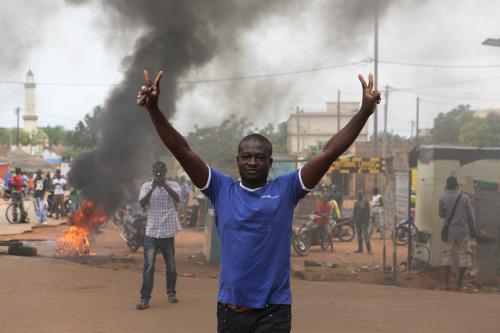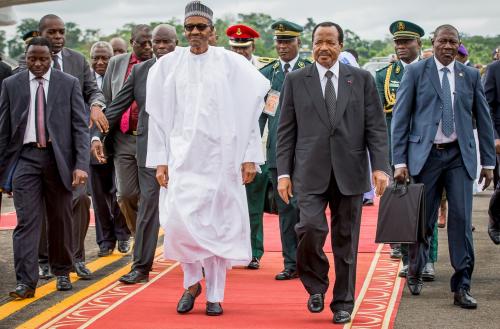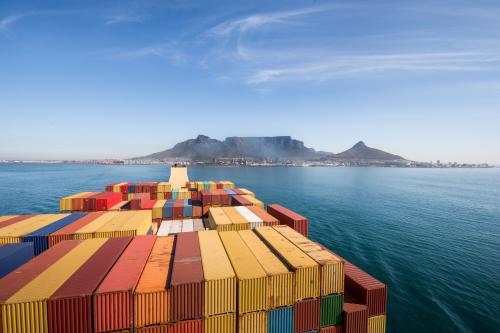Nigerian Finance Minister Ngozi Okonjo-Iweala questioned over missing funds
At the Governors’ Forum in Nigeria this week, leaders of the country’s 36 states formally asked Finance Minister Ngozi Okonjo-Iweala to account for the $20 billion reportedly earned from the sale of the country’s crude oil but missing from its national treasury. This request of the finance minister comes just days after former Central Bank Governor Lamido Sanusi rebutted claims that the controversial PricewaterhouseCoopers audit report of the Nigerian National Petroleum Corporation (NNPC) had vindicated the government of rent-seeking. Last year, Sanusi publicly questioned discrepancies in government accounts, a move that led to his subsequent suspension. On Wednesday, Okonjo-Iweala, however, dismissed any demand for explanation as “totally strange” due to the fact that the accounts are discussed regularly with the state commissioners of finance. The ministry also assured that it would publish details of the accounts to ensure further transparency.
Embezzlement allegations are only one of the concerns that Africa’s biggest oil-producing nation is facing at the moment. Earlier this month, Nigeria had to further borrow to stave off dramatic budget shortfalls. In addition, the National Bureau of Statistics released a report this week indicating that Nigeria has experienced a plunge in foreign investment over the last quarter—a drop of $1.23 billion (nearly a one-third decline in inflows). Depressed oil prices and uncertainties around recent national elections are possible explanations for the dampened investment sentiment.
Economic Community of West African States (ECOWAS) holds heads of state summit
ECOWAS held its 47th summit this week in Accra, Ghana. The session brought together the heads of state of the group’s 15 member countries and focused on West Africa’s challenging political and security situation.
In an effort to support improved political leadership in the region, a proposal aiming to limit presidential mandates to two terms was introduced for consideration at the summit. Presently, all but two of the ECOWAS member countries have term limits: Gambia and Togo. Term limits have been controversial issues across sub-Saharan Africa, especially in recent months, and efforts on the part of regional heads of state to maintain power have resulted in dramatic protests and national upheavals, as seen in Burkina Faso and Burundi. The proposition to ban term limit extensions was not adopted, however, following the opposition of the Togolese and Gambian presidents.
This summit is one of Nigerian President Goodluck Jonathan’s final international appearances as a head of state. President Jonathan was widely praised for his political leadership by his ECOWAS colleagues during the summit. In particular, ECOWAS Chairman and Ghanaian President John Dramani Mahama commended Jonathan for his commitment to ensuring the success and peaceful outcome of Nigeria’s presidential election in March. President Ellen Johnson Sirleaf was also congratulated in her efforts to eradicate Ebola in Liberia.
As the summit came to a close, President Mahama handed the ECOWAS leadership to Senegalese President Macky Sall. President Mahama was thanked for his commitment to strengthening regional cooperation in West Africa during his two-year term. President Macky Sall vowed to sustain ECOWAS’ role as a “powerful, united and inclusive bloc.”
Concerns over “free and fair” Ethiopian elections
On Sunday, May 24, Ethiopia is scheduled to host its national elections, which are expected to deliver another sweeping victory for the country’s ruling party, the Ethiopian People’s Revolutionary Democratic Front (EPRDF). The EPRDF has ruled Ethiopia since 1991 and established firm control over the country’s political sphere, economic institutions, and independent media—notably by intimidating, harassing, and imprisoning political opponents and journalists. In the last election in 2010, the EPRDF won by 99.6 percent of the vote, demonstrating just how non-competitive elections are under the party’s effectively authoritarian state. In a move that has drawn further attention to the party’s dominance and the frustration of the main opposition party, Medrek, an opposition activist last month set fire to himself, in large part owing to politically motivated harassment he allegedly received from the EPRDF as a member of the opposition.
Meanwhile, U.S. policy toward autocratic regimes in Africa, especially Ethiopia’s, has come under some criticism this week, because, despite the EPRDF’s flagrant disregard for democratic principles and competitive electoral processes, the U.S. continues to channel huge disbursements of development assistance to the government—approximately $580 million in 2012—due in large part to Ethiopia’s strategic partnership on counterterror programming in the Horn of Africa, according to some observers. The Obama administration’s nominee to lead the U.S. Agency for International Development, Gayle Smith, who has a long history of serving the U.S. government on African affairs, was also criticized this week for keeping close ties to the EPRDF, while her supporters have argued that she uses these connections to advocate for a stronger focus on human rights and improving the political environment in Ethiopia.
South Africa announces plans to build nuclear power facilities
On Tuesday of this week, Minister of Energy Tina Joemat-Pettersson announced ambitious plans for South Africa to construct six new nuclear power plants by 2030 in an effort to add nearly 9,600 megawatts of electricity to the country’s national grid. South Africa hosts the region’s only nuclear power plant and also possesses significant uranium deposits. According Joemat-Pettersson, the country’s “nuclear build program” will also include developing South Africa’s uranium enrichment capacity and new fuel production sites. Joemat-Pettersson’s announcement comes almost one week after the government released new plans to cut the nation’s power supply as South Africa’s struggling public electricity utility Eskom seeks to update it aging infrastructure and address ongoing leadership and management challenges.
South African political opposition party, the Democratic Alliance, harshly criticized the government’s nuclear ambitions, citing serious concerns about the country’s capacity to undertake appropriate safety measures and manage its nuclear facilities given Eskom’s funding and management shortcomings. After Joemat-Pettersson presented the nuclear plans to parliament, Democratic Alliance Shadow Deputy Minister of Energy Gordon Mackay stated, “… South Africa is simply not ready to expand its nuclear capability safely.” In an effort to expand management capacity and respond this challenge, South Africa will also launch an exchange program with nuclear training facilities in China, among other countries.






Commentary
Africa in the news: Nigeria’s finance minister questioned over missing funds, ECOWAS holds heads of state summit, Ethiopian elections draw criticism, South Africa announces nuclear power facilities
May 22, 2015